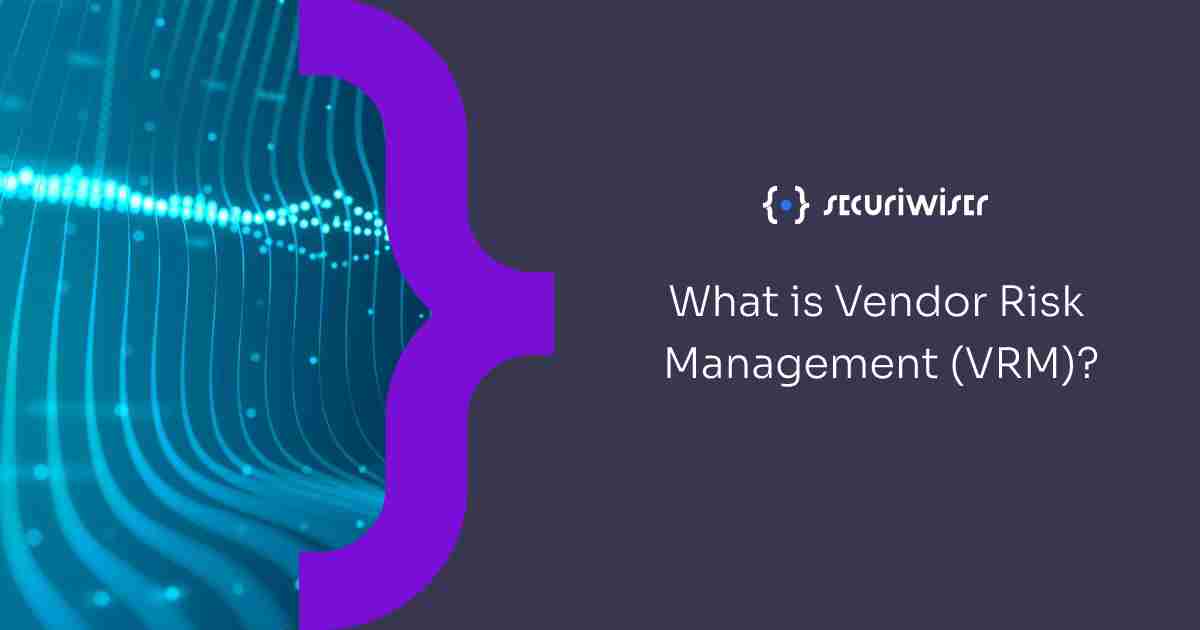What is Vendor Risk Management?
Blog / What is Vendor Risk Management?
5 MIN READ


When you run your business, it’s natural to have concern about potential risks and any impact they may have on your company. Every business has its own specific risk factors that make them vulnerable to attack from outside forces. Vendors are also one of these outside forces that can pose a threat to your business if left unchecked. When working with vendors, you need to maintain a balance between the benefits of doing business with them and the risks involved in doing so.
What is Vendor Risk Management?
Vendor risk management (VRM) is the process of managing the relationships with vendors and suppliers. It is the process of ensuring that your company has good relationships with your vendors, and it also includes checking vendors’ performance. Vendor management also includes setting up a vendor management system.
Why is Vendor Risk Management important?
Vendor risk management is not just about managing the risks of your vendors. It is also about managing your own risks. If you manage your vendors well, you are also going to manage your own risks. This is because the issues that threaten your vendors could also affect you. For instance, if one of your suppliers experiences a data breach, it could have a series of cascading effects which could result in your sensitive and confidential information being exposed. Such as data could include contracts between you and your vendor, customer details as well as payment information.
Why You Need To Have Vendor Risk Management
Vendors are a major risk in business. The best way to protect your company from these risks is to have vendor risk management. With vendor risk management, you will be able to identify the risks posed by your vendors, assess the likelihood of these risks occurring, and take action to minimise them. With the right measures in place, you will be able to manage your risks and avoid costly catastrophes. Some of the most common risks that you need to manage with vendor risk management include:
- Uncontrolled Growth: Uncontrolled growth is one of the most common risks that a business can face. It could mean that your organization is unable to handle the additional workload. This could lead to breakdowns in services and a loss of customer confidence.
- Cost Overrun: The cost of doing business is always an issue. The vendor who over invests in his work is a major risk. It could lead to financial loss if the work is not completed on time.
- Poor Quality Work: Another major vendor risk is poor quality work. This works against the brand image of your business.
Types of Vendors
Vendors come in different shapes and sizes. For instance, the vendors that you deal with on a daily basis are your business vendors. These are the vendors that you deal with like suppliers of materials, equipment, and services that you need to operate your company. The third type of vendor that you can deal with is a subcontractor. Subcontractors are the vendors that you hire to work on specific aspects of your company that you don’t want to get involved in. The first step in Vendor Risk Assessment is to assess the vendor’s type. There are two major types of vendors: internal and external. Internal vendors are your core business operations like your accounting, human resources, procurement, and legal departments. External vendors are the other businesses that supply your business with goods and/or services.
Vendor Risk Assessment
Before you are able to manage the risks and improve your business, you must first assess the level of risk your vendor poses to your company. This is a critical step in Vendor Risk Assessment. You can achieve a much better result if you start with a risk assessment of your vendors. This will help you get a better picture of what dangers await your company. This can help you choose which vendors to manage and which to avoid.
Risk Scenario: What if something goes wrong? How will your business be affected?
Risks Affecting Your Business: What are the risks affecting your business?
Risks Affecting your Business Operations: What are the risks that could harm the operations of your company?
Risks Affecting your People: What are the risks that could affect your employees?
How to Manage Vendor Risk
There are several important steps that you can take to manage your risk as a vendor. First, identify the vendors that are most important to your business. This can help you prioritise your vendor management. Next, check the vendor’s performance record. This can help you identify the vendors that are performing poorly so that you can avoid them in the future. Also, check their financial performance to find out if they are fulfilling their obligations. If you do this, you will be able to identify the vendors that pose a higher risk to your business. Next, create a vendor risk management plan. This plan should include a vendor risk assessment, vendor risk management strategy, an action plan, and a monitoring and evaluation plan.
Vendor Self-Inspection Checklist
There are some important items that you need to check before hiring a vendor. These include:
The vendor’s financial health: Check the vendor’s financial health to see if they can be trusted to do the work.
The vendor’s work history: Look at the vendor’s work history to see if they have delivered quality work in the past.\ \ The vendor’s references: Call the references of the vendor to confirm that they are reliable.\ \ The vendor’s contract: Have a close look at the contract of the vendor to see if it is fair and reasonable.\ \ The vendor’s terms of delivery: Check the terms of delivery to see if the vendor is not asking for unreasonable conditions.\ \ The vendor’s pricing: Make sure that the price that the vendor is charging is reasonable.
Vendor Contract Review Process
A critical part of vendor risk management is to review and revise your vendor contracts. This is important because it gives you an opportunity to manage your risks and protect your company. First, you should revise your vendor contracts to make them as fair as possible. Next, you need to add clauses that will protect your company in case of any unforeseen risks. Some of the most important clauses that you need to add to your vendor contracts include:
- Clause that requires the vendor to complete the work within the agreed time
- Clause that requires the vendor to deliver the work within the agreed budget
- Clause that requires the vendor to pay the agreed amount of compensation if they fail to complete the work on time or within the budget
- Clause that requires the vendor to deliver goods and/or services of high quality
- Clause that requires the vendor to indemnify your company from any liabilities or loss due to their work
- Clause that requires the vendor to disclose any information related to their work
- Clause that requires the vendor to maintain their work for a certain period of time
Conclusion
Vendor management is an important part of running a business. It can help you avoid costly mistakes and minimise risk. This can help your business grow and thrive. If you want to protect your company from threats posed by vendors, you need to start with a risk assessment of your vendors. Next, you need to create a vendor risk management plan. With these steps, you will be able to protect your business from vendor risks and thrive in the competitive market.
Previous Article
Why Cybersecurity Risks in Schools Are RisingHow secure is
your business?
Blog categories
How secure is
your business?